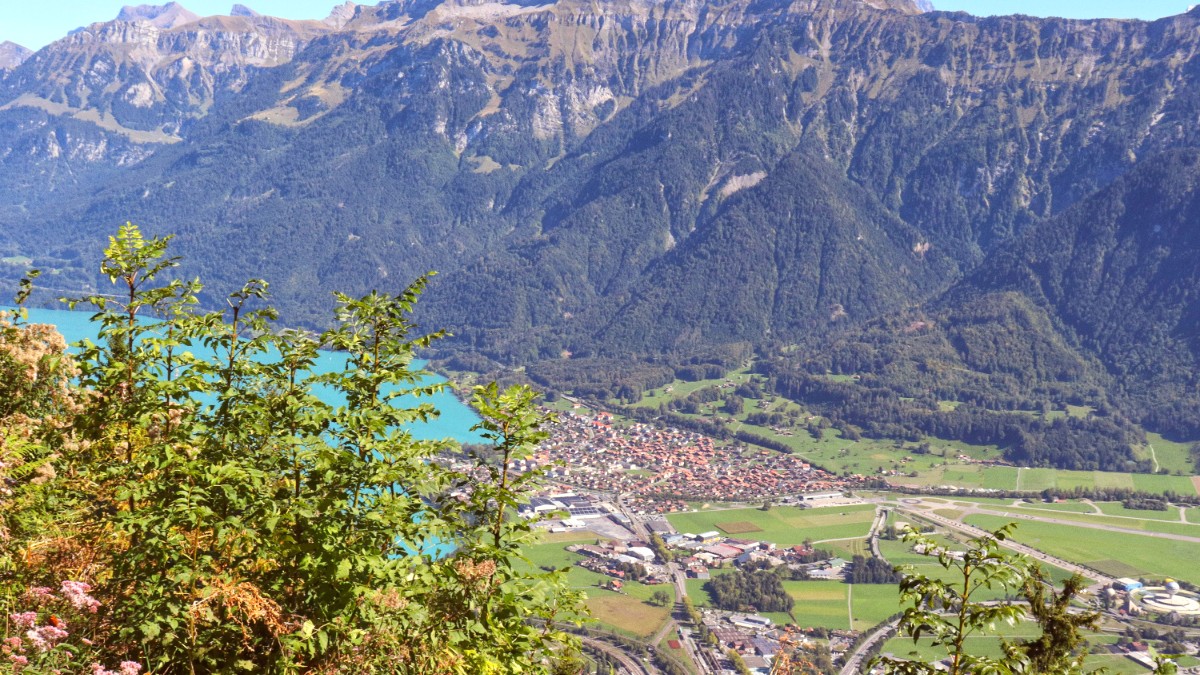
Central Switzerland And Berner Oberland, Switzerland
The official currency of Switzerland is the Swiss Franc (CHF). ATMs, known as "Bancomat" in Switzerland, are widely available in Interlaken and throughout the country. They generally offer favorable exchange rates. Using ATMs to withdraw cash directly in Swiss Francs is usually the most economical method.
Credit cards (Visa, Mastercard, American Express) are widely accepted in hotels, restaurants, and shops. While some larger tourist establishments might accept Euros, change will almost always be given in Swiss Francs, often at an unfavorable exchange rate. Carrying a small amount of cash for smaller purchases is advisable, but reliance on cash is not a requirement.
Accommodation (per night): Hostel dorm bed: CHF 30-60; Budget hotel/guesthouse: CHF 80-150; Mid-range hotel: CHF 150-250; Luxury hotel: CHF 250-500+.
Meals: Breakfast (hotel): CHF 10-25; Breakfast (bakery/supermarket): CHF 5-10; Lunch (casual restaurant/supermarket): CHF 10-25; Dinner (mid-range restaurant): CHF 30-60; Dinner (fine dining): CHF 70-150+; Coffee: CHF 4-6; Local beer: CHF 6-9.
Sample prices (full fare)
Single local bus ticket: CHF 2.50-4
Harder Kulm return ticket: CHF 38; Jungfraujoch return ticket: CHF 200-250 (discounts with passes).
3-day, 2nd class: CHF 232 (unlimited train, bus, boat, discounts on mountain railways).
1-month: CHF 120 (50% discount on most transport).
Sample entry fees
St. Beatus Caves: CHF 18
Paragliding tandem jump: CHF 170-200+
Swiss supermarkets like Migros and Coop offer high-quality, fresh groceries. Many hostels and some apartments contain kitchen facilities. Purchasing ingredients and preparing your own meals drastically cuts food costs. For lunches, prepare sandwiches and snacks from supermarket purchases. Swiss tap water is safe, clean, and delicious everywhere. Carry a reusable water bottle and refill it often. This saves money and reduces plastic waste.
Interlaken's town center is compact and very walkable. Many attractions are within walking distance, and bike rentals are available for exploring wider areas. This reduces local transportation costs. Many of Interlaken's most stunning experiences are free: enjoy scenic hikes, walks along the lakeshores, or simply admire the views of the Jungfrau, Eiger, and Mönch from Höhematte Park. Visiting in May, September, or October often means lower prices for accommodation and fewer crowds.
Great value for extensive travel on public transport and mountain excursions.
50% discount on nearly all public transport and mountain railways.
Excellent for intensive exploration of the Interlaken and Jungfrau regions, with many mountain trips included.
Free local bus travel and discounts on local attractions (provided by hotels).
Not mandatory; service charges included. Rounding up or small amount for exceptional service appreciated.
Interlaken, like the rest of Switzerland, is a very safe destination. Preparation for health and safety aspects creates a trouble-free trip, especially when engaging in outdoor activities.
Awareness of potential health issues allows for better prevention.
No specific vaccinations are needed for entry to Switzerland.